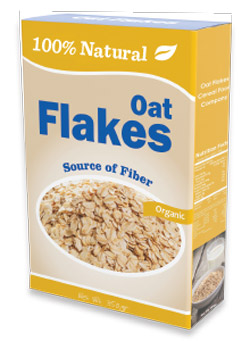What does "natural" mean?
This article was originally published in August 2016

Since 2014 the Food and Drug Administration (FDA) has asked the public to weigh in on how the term “natural” should be defined and used on food labels — or whether the FDA should regulate the use of the term at all. By the time the agency closed its public comment period in May, it had received about 7,600 comments from consumers, companies (including PCC), food experts and health and legal authorities. The FDA says it’s now reviewing the comments.
We asked you, PCC members and shoppers, to weigh in. We included your opinions in our formal comments to the FDA. Here’s an excerpt.
PCC urges the FDA to establish a standard for food labeled “natural” that’s consistent with consumer expectations. PCC shoppers told us they expect “natural” to refer not just to ingredients and processing methods, but also the methods used to produce food.
Consumers expect “natural” foods are produced without synthetic pesticides or genetic engineering; that livestock are raised outdoors with pasture, without growth promoters for feed efficiency or weight gain, or sub-therapeutic antibiotics; and no irradiation or hydrolysis. These and other production methods already are addressed thoroughly by the U.S. Department of Agriculture’s (USDA) organic standards.
Therefore, to bring the “natural” label claim into alignment with consumer expectations, the FDA should require all food labeled “natural” to be certified organic as a baseline. In fact, surveys from the Hartman Group and Consumers Union found most consumers already believe “natural” and “organic” are largely synonymous. Comments from our member-owners were consistent with that position.
We urge the FDA to establish organic standards as the baseline for defining “natural,” using the existing structure of USDA certification and enforcement, without having to develop a new standard from scratch. In this way, USDA organic standards are clarified and strengthened to reflect what consumers actually expect.
However, since some organic foods include artificial ingredients, not all organic foods would meet consumer expectations for “natural.” Organic standards set a baseline but only organic foods without artificial ingredients meet consumer expectations for “natural” claims.
The FDA already has stated in the Federal Register that “natural” means nothing artificial or synthetic has been included or added to a food. Yet we still see the term “natural” on foods with artificial ingredients, misleading consumers every day. This indicates the FDA must codify a definition for “artificial” and exclude foods containing ingredients produced artificially with genetic engineering, synthetic biology, genomic editing or nanotechnology.
“Natural” by the numbers
- Americans spend more than $40 billion a year on cereals, breads, yogurts, beverages and other foods identified as “all natural.”
- More than 100 class-action lawsuits have accused companies of misleading consumers by labeling products that contain synthetic, artificial and genetically engineered (GE) ingredients as “all natural.” Federal judges have urged the FDA to weigh in, saying they cannot rule on whether companies improperly used the term on their products until the FDA defines what it actually means. The risk of litigation already has caused food industry giants like PepsiCo, Frito-Lay, Campbell Soup and others to stop using the word “natural” on products.
- The issue of whether GE foods can be labeled “natural” has been raised in more than 50 legal cases.
- Across the food industry, the number of products claiming to be “natural” fell to roughly 22 percent in 2013 from about 30 percent in 2010.
